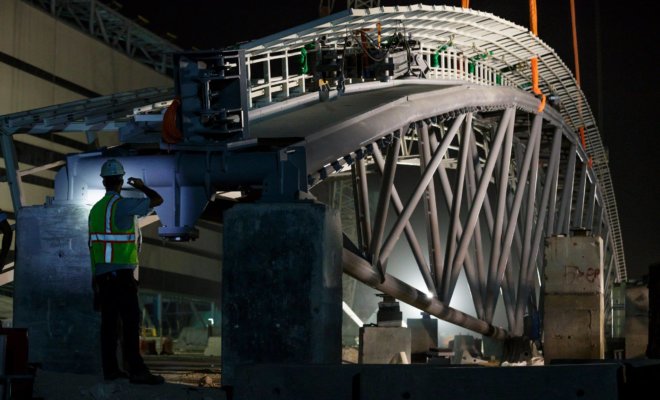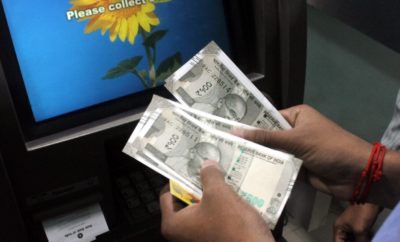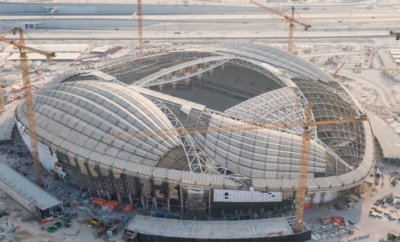Immigration
Migrants Workers Constructing World Cup Facilities in Qatar Unpaid for 2 Years: Amnesty

Construction in progress for FIFA 2022 in Al Khor.
Photo: Facebook/ @roadto2022
Mercury MENA owes its employees, working on building 2022 soccer World Cup infrastructure, between $1,370 and $2,470 in salaries and benefits, Amnesty International said.
Human rights organization Amnesty International has accused an engineering company in Qatar of not paying wages for the past two years to migrant employees who have been working on construction projects with broader links to the FIFA World Cup tournament in 2022 in Qatar.
“Mercury MENA failed to pay its workers thousands of dollars in wages and work benefits, leaving them stranded and penniless in Qatar,” Amnesty said in its statement released on Sept.26.
FIFA quashed Amnesty’s claim and called its statement misleading.
“We have no reason to believe the reported violations of workers’ rights are in fact linked to FIFA and the 2022 World Cup. We regret Amnesty chose to frame its statement in such a misleading manner,” news agency AFP quoted a FIFA spokesperson as saying.
Steve Cockburn, Deputy Director, Global Issues, Amnesty International, tweeted that workers were working infrastructure related to the 2022 soccer World Cup.
The #MercuryMENA workers were not working on #WorldCup stadia or official venues, but on infrastructure built with broader links to it. Abuse happened building the Barwa workers complex for example, where many World Cup workers live, and at Lusail – a host city #Qatar
— Steve Cockburn (@stevecockburn) September 26, 2018
Amnesty said that it interviewed 78 former Mercury MENA employees from India, Nepal, and the Philippines between October 2017 and April 2018 who said that the firm owed them huge sums of money.
It said that “most of the former Mercury MENA employees interviewed by Amnesty International were owed between $1,370 and $2,470 in salaries and benefits.”
Amnesty called upon the Qatari government to ensure that the unpaid wages are paid to Mercury MENA’s former employees, who traveled to the country taking hefty loans and were left with no money.
“Sadly, the exploitation of migrant workers by Mercury MENA is not an isolated case. We will continue to pressure the Qatar authorities until promises of overhauling the sponsorship system are delivered, and workers’ rights are fully protected both in law and practice,” Cockburn said in the statement.
In November 2017, Amnesty International spoke to the CEO of Mercury MENA, who said that the company had been facing “cashflow problems” and that they had a number of disputes over payments with contractors and clients.
According to Amnesty, it sent more emails to Mercury MENA in December 2017 and January 2018, requesting the details of solutions and actions that the company was taking, but got no response.
Other than urging Qatari government to ensure payments of workers, the international organization also asked the government to fundamentally reform the “Kafala” sponsorship system that has allowed numerous companies to exploit migrant workers.
Kafala is a system in Qatar which monitors and deals with immigrant workers in the country. The system includes stringent norms such as the need for employees to take permission of employers before changing their job, leaving the country, or even renting house. Confiscation of an immigrant worker’s passport for the entire period of contract is also a part of the Kafala system.
Qatar has been facing criticism from rights organizations, who have been calling to abolish the stringent labor policies in the country. In an attempt to remove some negativity associated with its name, Qatar had amended its residency law earlier this month, to allow migrant workers to leave the country without an exit visa. It had also announced earlier this year to increase the minimum wages for migrant workers by the end of 2018.



